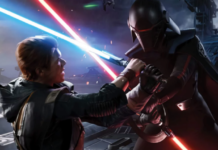
Giants:
Citizen Kabuto Retrospective
By Andrew Groen
The
progenitor of all comic-arcade shooters
If you enjoy the Ratchet and Clank
and/or Jak and Daxter games then you have Interplay to thank for blazing trails
with their seminal epic, Giants: Citizen Kabuto, an incredible blend of
open-world environments, jet-packs, crude British humor, and fast-paced action.
Far from being an action-packed
one-trick-pony though, Giants was also a gorgeous technical feat that featured
expansive island environments, beautiful sunsets, and fluid character
animations, which helped bring the highly bizarre inhabitants of this alien
planet truly come to life.

What were its
cultural impact and/or importance?
This game
had a profound impact on the tone of modern action gaming. It’s entirely
possible that we would not currently have beloved classics such as Ratchet and
Clank if it were not for the trailblazing humor and gun-slinging action of
Giants.
Moreover,
Giants included real-time strategy elements as you had to command your squad of
several alien marines. This type of squad-based strategy is relatively common
these days, though it was considered "genre-bending" at the time.
That being said, Giants never enjoyed much of a cultural impact due to its poor
sales. Immediately after launch, users began reporting system crashing bugs, and
dozens of glitches. This gained Giants something of a poor reputation and,
despite solid review scores, it never achieved the critical mass necessary to
gain traction.

What areas of
gaming did it advance?
Technical advancements were practically a bi-weekly occurrence on the PC in the
late 1990s and early 2000s. So to say that Giants pushed the technical envelope
isn’t really saying anything. It certainly wowed gamers with its graphics and
animations, but it was in gameplay that Giants captured the attention of
everyone.
It was ahead of its time in the category of genre-blending. While four or five
years later every designer on the planet would be looking (and generally
failing) for the next pair of genres to combine, Giants braved mostly uncharted
waters and came away with extremely positive results for such an outside-the-box
attempt.
The gameplay was also notable for its attempts at putting an open level at the
fingertips of the player. Giants was a game that gave you a starting point and a
destination, that’s all. The "how" was all up to you. Though its open ended
nature has been dwarfed by the epic scale of games such Grand Theft Auto IV,
this open style of design was quite uncommon at this time for this genre.

Does it stand
the test of time?
If you’re the kind of gamer that values well-constructed missions, and fun
open-ended gameplay, then yes, Giants absolutely stands the test of time. You
can still buy it today for around $6, and it’s still extremely fun in a lot of
ways.
There’s a catch though. Like all great games, this one has been imitated dozens
of times by now, and everything you’ll find here has been duplicated since. It
doesn’t necessarily diminish the quality of this game, but you’re not likely to
find much that’s surprising or new.
In a vacuum, this is a fantastic game that should be experienced by all.
However, if you’ve been gaming in the last five years you’ve likely experienced
so much of its latent influence that you’ve essentially played it all before.
If you’re looking to study a bit of the archaeological history of modern gaming
this is an indispensable classic. However, those who are just looking for a good
time would do just as well to play one of its modern descendants.
* * *
Next Saturday we will continue our
retrospective column with a look at Advance Wars for the GameBoy Advanced.







